The border standoff between India and China on the high altitude mountains is giving the creeps to international crisis managers. The 2017 stalemate in Doklam was the precursor to bigger conflicts, and the forebodings came true when 20 Indian soldiers and an unspecified number of Chinese troops died in Galwan Valley this year. What next?
The first deaths in more than 50 years of India-China conflict were a phenomenally important watershed moment. It all depends on how the two sides manage the conflict here on. On Monday, September 7, the Associated Press carried a report that quoted military experts talking about an unintentional war. What could be an unintentional war like? And how will the tensions lead all the way to that point?
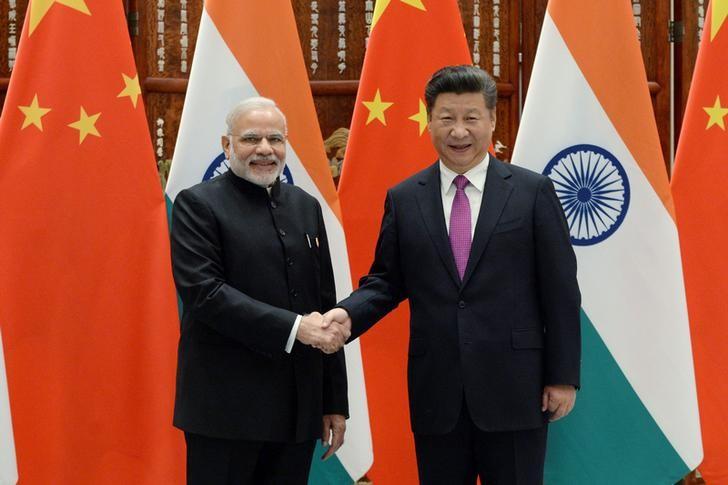
Reams have been written about the 'imminent' nuclear configuration in Asia. Every geopolitical analyst worth his salt has chimed in with expert opinions. Tabloids are happy pushing headlines that scream World War III. And, many believe that a China-India conflict would not be limited to conventional warfare. Is that how it's going to pan out into?
So, there are numerous questions. Will the clashes and sabre rattling deteriorate into full-on war? Will such a war become a nuclear war? Will it become a regional conflict with Pakistan joining in on the other flank to push its agenda to annex Kashmir? Will such a regional war then descend into an Asian war? And then, will big powers US and Russia intervene, making it a 21st century Armageddon that simply spells doom to the civilisation as we know it?
No one knows. But, what if?
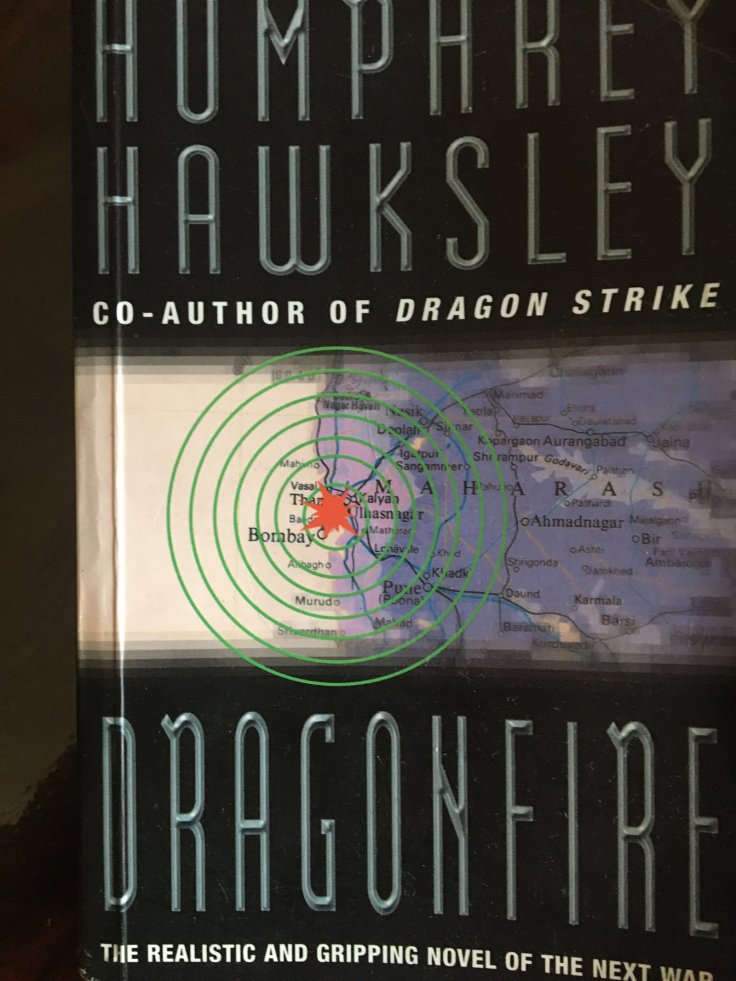
That's when I remembered about a long forgotten novel written by acclaimed BBC journalist Humphrey Hawksley. I think I first read it nearly 20 years ago. In the novel Dragon Fire the author is assuming the role of a precise soothsayer of the grim chain of events that would unfold when the two Asian giants stop staring and start acting.
The amazingly well researched military thriller with a dystopian ending gives the reader the ringside view of the great power play in world capitals. The novel is set in 2007, and was written circa 2000. It starts with a renegade military unit's ill-timed but spectacularly bold mission to rescue a high-value Tibetan leader from the Chinese dungeon in Lhasa where he has been condemned to.
Renegade Troops in Tibet
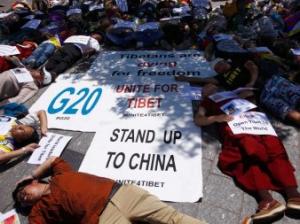
All of a sudden the Chinese stranglehold on Tibet is under threat and Beijing holds India squarely responsible for the complex undercover operation in which the Tibetan leader is whisked away to Bhutan. There's bloodbath across the autonomous region with Tibetans ruthlessly targeting the Han Chinese wherever they are in majority. Beijing is hot under the collar, never before having seen a revolt of this magnitude.
China Hits Tibetan Center in India
In the immediate aftermath, the Tibetan parliament in exile in India is blown to pieces while a legislative session was in progress. Military operators in command in Beijing soon enlist Pakistan into the treacherous web of events. A helicopter carrying a top ranking Indian government minister and the army commander is shot down over Srinagar in Kashmir with an American-made Stinger missile. With China's overt blessings, the Pak army general stages a coup, takes over the country and rolls out the final campaign to 'retake' the whole of Kashmir.
Indian Ocean Rumbles
Hectic parleys in world capitals uncover the diplomatic, military and geopolitical priorities each world power is preoccupied with. While the US and Russia would not reveal their game plan until late in the day, Britain, Australia, Malaysia and New Zealand decide to checkmate the rising Chinese naval presence in the Indian Ocean. But a botched operation to destroy a Chinese naval command off Myanmar leads to the retaliatory sinking of an Indian warship by the Chinese.
India-Pakistan Flareup
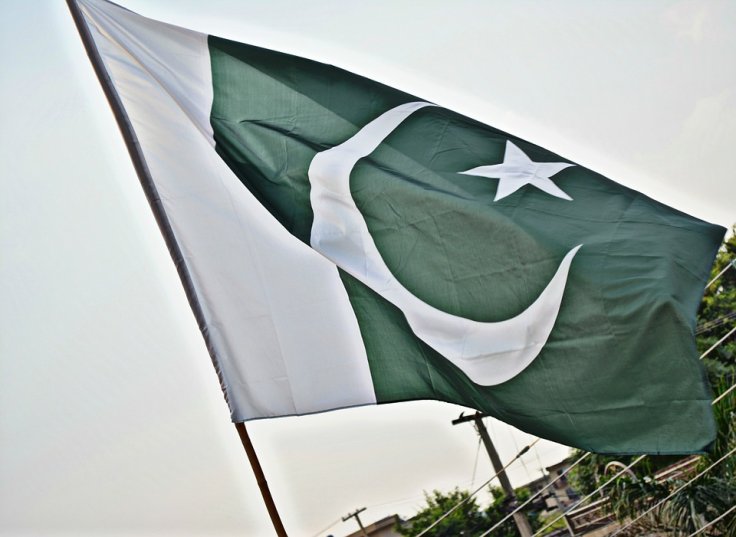
Meanwhile, India is in a pitched battle with Pakistan in the western theater, unleashing unforgiving firepower on Pakistani positions. As a mighty tank group gets closer to Lahore and Karachi, the Pak military dictator orders a tactical nuclear strike on its own soil to stop the Indian advance. The US engages at this point, carries out tactical nuclear attacks on key nuclear facilities of Pakiststan to prevent another nuclear strike.
Thousands of Chinese troops are trapped in India's Arunachal Pradesh as India cuts off supply lines to the invading army.
Taiwan Declares Free State
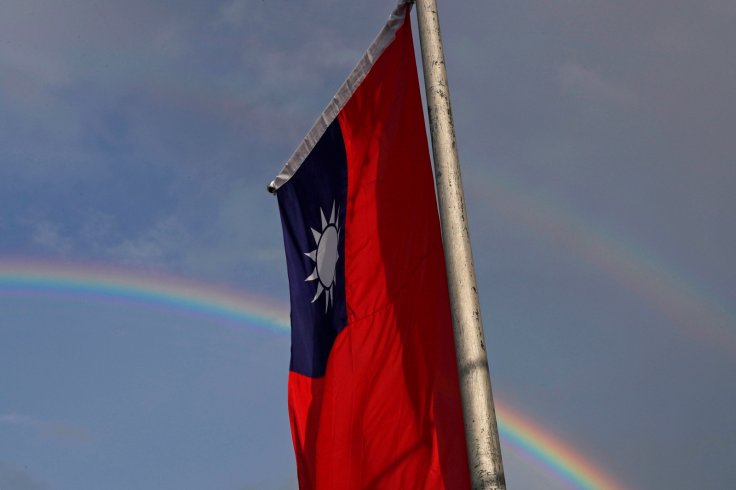
Meanwhile in Taiwan, the nationalist president sees opportunity in the crisis, goes on live TV to declare Taiwan's full independence. With Pakistan folding up as a state and Russia ledging arms supplies to both India and China, Beijing finds it has hardly anyone to call a friend. And that makes the Dragon extremely dangerous. But the US doesn't intervene. Neither do the Japanese nor the British.
US, Russia Watch From Sidelines
Moscow and Washington realize dangerous Chinese designs in the Indian Ocean but the two powers wrangle over the power vacuum if China is taken on. In the end, the two great powers decide to callously watch from the sidelines as the calamity unfolds.
The book shows how China implements the Machiavellian principles of statecraft to the finest element of mindless brutality -- War is not to be avoided, but to be put off to the advantage of others.








